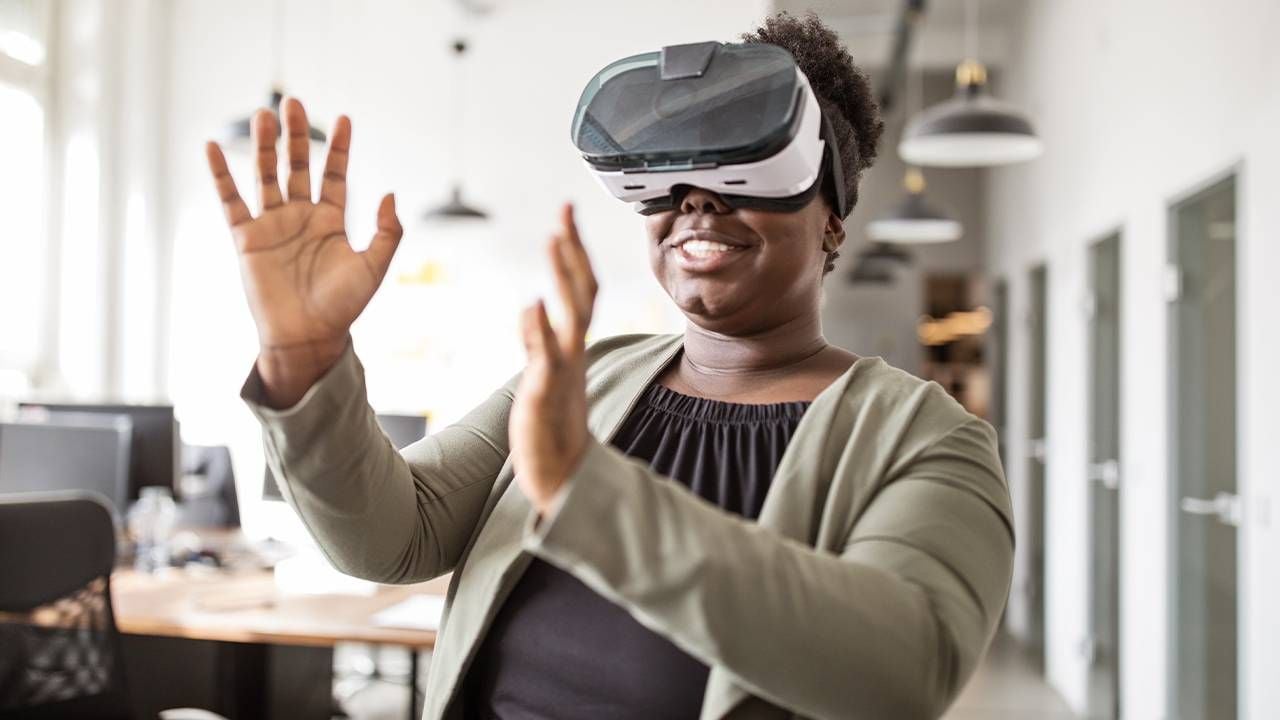Ready Player One: How VR Will Reinvent Aging
Virtual reality technology is about to improve aging in a big way
When you hear the two letters VR (for virtual reality), you probably conjure up images of obsessed video gamers, lurching around their basements in futuristic headsets.
Seriously now, what allure could this sci-fi technology possibly hold for a boomer at midlife and beyond?

Frankly, quite a lot. VR allows for intensely "real" simulated experiences. Businesses like MyndVR and Viva Vita are producing virtual "bucket-list" travel experiences, whether that means swimming with dolphins in Mexico or hot-air ballooning across the Southwest – a huge boon for people who can't travel due to mobility, health or financial issues.
The Issue of Isolation
But there's something more significant on the horizon: immersive experiences going deeper and helping tackle isolation and cognitive decline, two of the biggest issues as we age.
One report found that nearly 1 in 4 adults aged 65 and older are considered to be socially isolated, which significantly increases a person's risk of premature death from all causes and is also linked to a 50% higher risk of dementia.
"We wanted to offer residents a new avenue for experiencing things and reminiscing in a positive way."
How can VR help? Rendever, a Massachusetts-based company, offers one path.
Kyle Rand, co-founder and CEO, was a college student when he began to observe how isolation diminished his beloved grandmother's quality of life, and he vowed to do something about it. He's been working ever since to use VR "to power new social connections via shared experiences – nothing is more important for this demographic," he says.
Rather than being a solitary pursuit, VR group "outings" await. Instead of putting on a headset and wandering through a vivid landscape solo, you can stroll around Paris' Left Bank and chat with your amis (friends) about what you are seeing.
Julie Bauman, executive director of Ohio Living Breckenridge Village, a community in Ohio, has partnered with Rendever for almost a year, and has seen firsthand the impact group VR can make.
"We wanted to offer residents a new avenue for experiencing things and reminiscing in a positive way. We schedule a dozen or so group sessions a week, and the immersive experience is very powerful," Bauman says, adding that participants reach out with their hands as they, say, travel through Machu Picchu ("They are really there, right in it!") and afterward stay and discuss the experience.
"It transports people to a different place in a way that is otherwise unavailable," she says, "and it creates conversations and connections, more than a slide show or screening ever could."
Studies support this observation: MIT research showed that assisted-living residents who engaged in VR versus showed fewer indicators of depression and social isolation and enjoyed better moods than ones who watched television.
Oh, The Places We Will Go!
Another way VR can uplift aging is by connecting people who can't be together IRL (in real life).
Families today are often far-flung, with one in four older adults living alone. Some VR companies are piloting programs in which an elder and a family member in different places each get a headset and go virtual adventuring together, distance be damned. This may reinvent the family reunion, with clans gathering on tech-created virtual mountaintops and beaches – wherever our imaginations lead.
Is it a replacement for sitting across the table from another human? No, but VR may be the next best thing.
"Technology has vast potential, not as a substitute for face-to-face but as a complement and conduit for that," says Sara Czaja, a professor of gerontology at Weill Cornell Medical College and the founder and director of CREATE (Center for Research and Education on Aging and Technology Enhancement).
Unlocking Meaningful Memories
Beyond creating new, shared memories, VR can also channel those we already have stashed in our memory banks. Virtual reality is playing a more prominent role in reminiscence therapy, which involves revisiting one's past (sharing photos, songs, memories and more) to improve self-esteem and contentment. It can be especially valuable for those experiencing cognitive decline.
"Technology has vast potential, not as a substitute for face-to-face but as a complement and conduit for that."
"Individuals with dementia may lose a lot of recent past, but many memories and emotions from farther back are still there," says Bauman. "An immersive experience can provide a space to remember and discuss something important from past."
A VR session can take you back to the street you grew up on, for example, or the arena where you saw the Stones play in '78.
That kind of flashback can be more than just comforting.
Bauman recalls one example of a resident with speech issues who had only been able to communicate with one or two words at a time. When this individual joined a VR experience trekking along the iconic Pacific Crest Trail, which weaves down America's West Coast – boom! Memories were unlocked. The person had hiked part of this path decades earlier and was able to share those experiences, communicating with five- or six-word sentences.
The research on VR in this realm is quite promising. A 2020 study found that digital reminiscence therapy (uploading and sharing materials that will trigger personal memories) improved the mood of people with dementia and provided more social-interaction opportunities. And UK research showed that VR experiences helped reduce aggression and improve interactions among this population.
"VR can clearly have positive benefits for patients with dementia, their families and caregivers. It provides a richer and more satisfying quality of life than is otherwise available," Jim Ang, one of the 2020 study's researchers, has said.
The experience may be virtual, but the results are real and positive, showcasing just how well this technology will improve our ever-longer lives.

